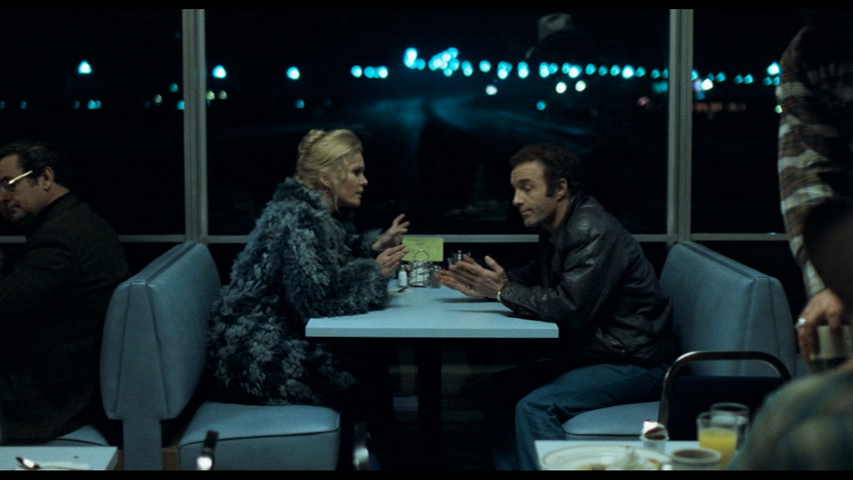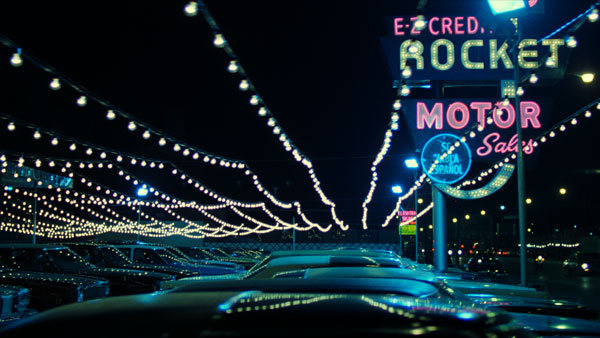Thief (1981)

Thief (1981) – A Masterpiece of Neo-Noir Cinema
Michael Mann’s Thief (1981) is a gripping neo-noir crime thriller that laid the foundation for the filmmaker’s signature style—cool-toned cinematography, deep character studies, and a meticulous exploration of professionalism in crime. Starring James Caan in one of his most intense and nuanced performances, the film delves into the life of Frank, a hardened professional thief attempting to leave his criminal past behind while being drawn into one last heist. With its atmospheric visuals, a pulsating electronic score by Tangerine Dream, and Mann’s intricate attention to realism, Thief remains a cinematic gem that continues to influence modern crime films and thrillers.
Plot Overview
The story follows Frank, a skilled safecracker operating in the dark corners of Chicago’s criminal underworld. Having spent years perfecting his craft, Frank is at the top of his game—meticulous, efficient, and calculated. However, his personal life is devoid of stability, and he longs for a normal existence outside of crime. He dreams of a future with Jessie (Tuesday Weld), a woman who shares his desire for a better life.
Frank’s ambitions lead him to collaborate with Leo (Robert Prosky), a powerful crime boss who offers him the biggest score of his career. Despite his instincts warning him against it, Frank agrees to the deal, hoping it will be his final job before retiring. However, as the heist unfolds, Frank realizes he has been manipulated and ensnared in a web of deceit, violence, and control. When his dreams are threatened, Frank is forced into a desperate battle for his freedom, culminating in an explosive and unforgettable climax.
Themes and Symbolism
At its core, Thief explores themes of individualism, existential freedom, and the cost of professional dedication. Frank is a man bound by his own rigid principles, adhering to a code that prioritizes efficiency, honor, and self-reliance. Yet, his desire to create a stable future clashes with the unforgiving reality of his world. The film portrays how the criminal underworld operates like a corporate machine, where even the most skilled individuals are ultimately expendable. Leo, a symbol of institutionalized crime, seeks to control Frank, treating him as an asset rather than an individual.
Mann’s storytelling also examines masculinity and the myth of the self-made man. Frank’s determination to forge his own destiny mirrors the archetypal American dream—one where hard work and skill should lead to success. However, Thief subverts this ideal by demonstrating how systemic forces make true independence almost impossible. Frank’s realization that he must sever all ties and reclaim his autonomy underscores the film’s fatalistic tone.
James Caan’s Phenomenal Performance
James Caan delivers a career-defining performance as Frank. Known for his role as Sonny Corleone in The Godfather (1972), Caan brings a raw intensity and emotional depth to Thief. His portrayal of a man torn between his criminal expertise and his yearning for normalcy is both compelling and tragic. One of the film’s standout scenes is Frank’s conversation with Jessie at a diner, where he candidly discusses his past and dreams. The scene, driven by Caan’s impeccable acting, encapsulates Frank’s vulnerability beneath his hardened exterior.
Caan’s performance is complemented by a strong supporting cast, including Tuesday Weld’s Jessie, who provides a grounded emotional counterpoint to Frank’s turmoil. Robert Prosky, in his film debut, is chilling as the manipulative Leo, embodying a quiet yet terrifying menace that looms over Frank’s fate.
Michael Mann’s Directorial Vision
As Michael Mann’s first theatrical feature, Thief showcases his keen eye for visual storytelling and thematic depth. The film’s aesthetic is drenched in neon-lit streets and rain-soaked alleys, creating a moody, dreamlike atmosphere reminiscent of classic noir films. Cinematographer Donald Thorin’s use of lighting and composition enhances the film’s tension, often placing characters in stark, isolated frames that emphasize their internal struggles.
Mann’s meticulous research and commitment to authenticity are evident in every detail. The film employs real-life criminals and ex-police officers as consultants, ensuring the heist sequences feel genuine. The safecracking scenes, in particular, are executed with precision, avoiding Hollywood embellishments in favor of a stark, methodical realism. This dedication to accuracy would become a hallmark of Mann’s later films, such as Heat (1995) and Collateral (2004).
The Impact of Tangerine Dream’s Score
One of Thief’s most defining elements is its electronic score by Tangerine Dream. The pulsating, synth-driven soundtrack heightens the film’s tension and gives it a hypnotic rhythm. Unlike traditional orchestral scores, Tangerine Dream’s music blends seamlessly with the film’s urban aesthetic, enhancing its cool, detached mood. Tracks like “Beach Theme” and “Dr. Destructo” evoke a sense of existential longing, mirroring Frank’s internal conflict. The score’s influence can be seen in later neo-noir films and TV series, such as Drive (2011) and Mr. Robot (2015), which adopted similar electronic soundscapes.
Cinematic Influence and Legacy
While Thief was not a massive box office success upon its release, it has gained a strong cult following over the decades. The film’s meticulous approach to crime storytelling, its emphasis on professional discipline, and its stylistic flourishes have inspired numerous filmmakers. Mann’s later works, particularly Heat, expand upon the themes introduced in Thief, refining the director’s exploration of professional criminals and their codes of conduct.
Filmmakers such as Christopher Nolan and Nicolas Winding Refn have cited Thief as a major influence on their work. The film’s aesthetic and thematic depth resonate in The Dark Knight (2008) and Drive, both of which feature protagonists with a similar sense of precision and detachment.
Final Thoughts: Why Thief Remains Essential Viewing
More than four decades after its release, Thief remains one of the most compelling crime dramas ever made. Its blend of neo-noir aesthetics, intense performances, and thought-provoking themes make it a standout in the genre. James Caan’s portrayal of Frank is unforgettable, capturing both the power and vulnerability of a man trapped between his past and his future.
Michael Mann’s directorial debut set the stage for his illustrious career, demonstrating a mastery of visual storytelling, character development, and thematic depth. With its moody cinematography, hypnotic score, and a gripping narrative, Thief is a timeless exploration of ambition, identity, and the cost of freedom.
For fans of crime thrillers, neo-noir, and masterful filmmaking, Thief is an essential watch—an electrifying and introspective film that continues to resonate with audiences today.











